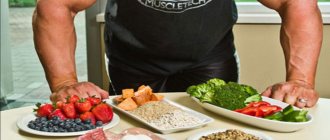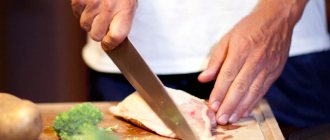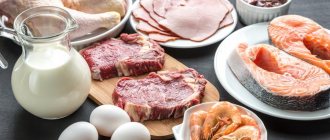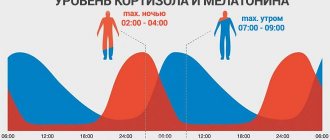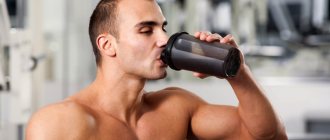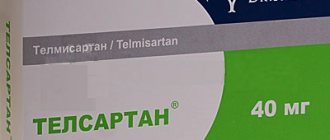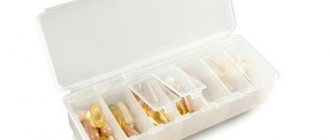Solving the problem of weight gain
Eating a large amount of vegetables and fruits leads to the fact that the fiber they contain fills the stomach and gives a feeling of fullness before the required amount of calories enters the body. Moving through the intestines, dietary fiber is poorly digested and, in addition, interferes with the absorption of carbohydrates.
Therefore, in order for a vegetarian to gain weight, it is necessary to eat high-calorie foods. As a rule, they have a high density and take up little space in the stomach. These are primarily nuts and seeds. It is advisable to use vegetables fried. If you are not a pure vegan, but consume milk and milk products, then this simplifies the task. Sour cream, bread and butter, cakes and pastries, fatty cheeses - these are best for gaining weight.
For normal well-being, it is believed that it is enough to add 300-500 g of weight per week. Nutritionists still recommend more physical activity, especially if sports nutrition is used. This way, muscle will be built, not subcutaneous fat.
In people with mental professions, weight gain is worse. For them, the use of whole grain wheat and rice is recommended. And instead of regular white sugar, they should use brown (cane) sugar. Vegetables should be eaten only after heat treatment, since in their raw form they give a laxative effect.
A special word should be said about oatmeal. Although it is considered a dietary product, the protein and starch it contains make this product very useful for those who want to gain weight. Starch, after processing in the body, is deposited in muscle tissue and in the liver in the form of glycogen. If a person plays sports, glycogen is converted into glucose, which serves as a good source of energy.
Vegetarians who want to gain weight by building muscle should have plenty of protein foods in their menu. These can be mushrooms, wheat or soy sprouts, nuts, pumpkin seeds, tofu. To even out the balance in the body, you also need spices such as cinnamon, black pepper and ground sweet pepper (paprika).
Spices are also useful to increase appetite. However, eating large quantities in one sitting is not recommended. To gain weight smoothly, you should eat more than three times. A uniform intake of calories into the body is achieved by eating 5-6 meals a day. Portions are made so that you feel slightly full.
Change your dietary supplements
Most nutritionists agree that as long as you consume enough plant-based protein, fat, and carbohydrates, you will meet your daily energy needs. However, in some cases, adding protein powder may be necessary. The good news is that there are many beneficial plant varieties available today. Make sure your supplements do not contain whey protein, which is released during cheese production (and we remember that you promised to give up dairy products).
"If you're super active, plant-based protein powders will really help your diet," says Wood. “I would choose ones made from whole foods, like hemp or sprouted quinoa, because there are a lot of overly processed powders that will do more harm than good.” She also recommends adding omega-3, B12 and vitamin D to your diet to stimulate energy production and protein metabolism.
Several vegetarian recipes for weight gain
- This recipe is suitable for the first breakfast: juice, wholemeal bread (3 slices) with nut butter, porridge (wheat or muesli) with cow's or soy milk and 1 banana.
- The second breakfast includes: a vegeburger with 2 hot dogs (vegetarian), or a sandwich with tofu cheese, chili sauce for vegetarians, torn lettuce and avocado slices (seasoned with olive oil), yogurt or soy milk product.
- Suitable for lunch: noodles with tofu, vegetable salad with avocado (dress with olive oil), bread (2-3 slices) with canola oil, fruit.
Snack during the day:
- A mixture of roasted sunflower seeds and nuts of different varieties.
- Nut butter (2-3 tbsp.) and crackers (unleavened). Drink with soy milk.
- Apple pieces mixed with honey (1 tbsp), nut butter (2 tbsp) and roasted sunflower seeds (1 tbsp). You can add banana.
For athletes building muscles, you should add a glass of protein shake to your main meals.
A little about protein
Although Wood believes that a small reduction in the amount of protein in your diet will not lead to dramatic muscle loss, the nutritionist emphasizes that the correct supply of protein, depending on your level of physical activity, will speed up the process of muscle growth. Scientists recommend consuming one gram of protein per 1.25 kg of body weight per day, but it's important to note that these numbers are intended to prevent protein deficiency. Therefore, this formula is unlikely to help your muscles grow by leaps and bounds. Research has shown that men need much more protein. So if you have a specific goal of building muscle, you need to increase your daily protein intake.
“Whether we're talking about vitamins or protein, the numbers for staying healthy and achieving fitness goals are completely different,” says expert Lauren Slayton. – If you are used to calculating in grams, then you can increase the amount of protein to 1 g per 0.5 kg of body weight, but I prefer to calculate everything as a percentage. This will make calculations more convenient, because it is easier to imagine the amount of protein on your plate as a percentage (about 30%) than the same amount in grams.” Also, half of your meals should be vegetables, and the rest should be a moderate amount of healthy fats and carbohydrates.
Consult a specialist
If you're unsure about the amount of nutrients you need to achieve your goal - whether it's muscle building or weight loss - then you should definitely seek professional help. Veganism is a complex and confusing process. Obviously, switching to a plant-based diet will force you to adjust your usual lifestyle.
You can work with a professional nutritionist to create a nutrition plan for you, or a personal trainer with whom you can discuss your workout routine and meal plan—either way, you need expert help. After all, the most important thing in switching to a different nutrition system is not to harm your body and not lose the results of your work in the gym.
First published on the American GQ website.
Vegetarianism and protein quality
Athletes and fitness enthusiasts who are opponents of vegetarian diets believe that cereals and vegetables alone will not get you far, because due to the incomplete amino acid composition of plant protein, we cannot count on achieving significant results in the pursuit of muscle growth. Meat, eggs and dairy products are the most valuable sources of protein for non-vegetarian athletes, since it is animal products that contain all 9 essential amino acids and in the quantities necessary for muscle growth.
Indeed, not every source of protein is equivalent - after all, it is the amino acid composition and the degree of protein absorption that determine the value of this nutrient for our body.
Many plant sources of protein contain insufficient amounts of essential amino acids, and some plants are completely deficient in one or more essential amino acids. In addition, plant products have another significant drawback - a relatively poor degree of protein absorption.
For clarity, take a look at the table that nutrition expert and physiologist Lyle MacDonald presented in his article on protein absorption. It shows the differences between the degree of protein absorption from certain foods:
So, what are the final differences between protein of animal and plant origin we have:
*Although soybeans have a full range of essential amino acids, the relatively low degree of protein absorption does not allow it to be completely equated with animal protein.
Can a vegetarian “get pumped up”?
The American Dietetic Association's position statement on vegetarian diets states: ...an adequately planned vegetarian diet is healthy and nutrient-balanced and is appropriate for all people at all stages of development, including pregnant and lactating women, infants, children and adolescents, and athletes.
American College of Sports Medicine Council member Professor Tom Best also notes in his article for EAS:
“Vegetarian athletes can meet their protein needs either primarily or exclusively from plant sources, as long as these foods are consumed in a variety of ways each day and the caloric intake is sufficient to meet their goals.”
How so? After all, compared to animal protein, plant protein has 2 problems - a low amount or lack of one or more essential amino acids, as well as poor protein absorption. A vegetarian cannot obtain the entire set of essential amino acids in sufficient quantities and, as a result, cannot build large muscles, some readers will think.
Certified nutritionist Andrea Gorman notes that the first problem can be solved by combining different sources of plant protein every day, and the second problem can be solved by increasing protein intake by 10% (compensating for poor digestibility of plant protein):
Protein requirements for non-vegetarians:
- For endurance trainees – 1.2-1.4 g/kg per day
- For athletes training with weights – 1.2-1.7 g/kg per day
Following the recommendations mentioned above, vegetarians need to increase their protein intake by 10%.
Protein requirements for vegetarians:
- Endurance training – 1.3 -1.5 g/kg per day
- Strength training – 1.3-1.8 g/kg per day
The final nutrition strategy for a vegetarian
Conclusion: Vegetarians can build muscle and achieve results in sports. The effectiveness of training largely depends on a person’s nutrition . For optimal performance in training and the ability to progress in results, it is necessary that an adequate amount of protein (as well as carbohydrates, fats, vitamins and minerals) be present in a person's diet.
A well-thought-out vegetarian diet can meet all of these requirements, including providing the body with all the essential amino acids in sufficient quantities. It is worth noting separately that if the athlete is not a vegan and does not refuse eggs and/or dairy products, the task of obtaining the required amount of the entire set of essential amino acids is greatly simplified.
The vegetarian's ultimate strategy for consuming adequate amounts of "complete" protein in a nutshell:
1. Include a wide variety of plant-based protein sources in your diet every day. 2. Consume 10% more protein than omnivorous athletes. 3. Pay special attention to foods that are rich in iron, zinc, calcium, vitamins D and B12, as well as omega-3 acids.
Sources:
- Venderley AM, Campbell WW, Vegetarian diets: nutritional considerations for athletes, Sports Med. 2006;36(4)
- Craig WJ, Mangels AR, Position of the American Dietetic Association: vegetarian diets, J Am Diet Assoc. 2009 Jul;109(7)
- Andrea Gorman PhD, RD, Implications of a Vegan Diet for Athletic Performance, Rocky Mountain University of Health Professions
- Vegetarian Eating, Australian Sports Commission
- Thomas M. Best, PhD, Vegetarian Diets For The Physically Active Individual, EAS Academy
- Building Muscle on a Vegetarian Diet, Academy of Nutrition and Dietetics
- Physical fitness and vegetarian diets: there is a relation, Am J Clin Nutr September 1999 vol. 70
- Debra Wein, RD, The Healthy Vegetarian Athlete – Parts 1,2
- Protein and Amino Acids in Sports, Rookie Module, EAS Academy
- Protein Complementation, American Society for Nutrition
- Lyle McDonald, The Protein Book, A Complete Guide for Coach an Athlete
- What Are Good Sources of Protein? – Protein Quality, bodyrecomposition.com
- What Are Good Sources of Protein? – Digestibility, bodyrecomposition.com
- What Are Good Sources of Protein? – Wrapping it Up, bodyrecomposition.com
- RD Resources for Consumers: Sports Nutrition for Vegetarians, Academy of Nutrition and Dietetics
- Eating Well for Vegetarian Athletes, Dietitians of Canada
- Vegetarian Eating for Athletes, Academy of Nutrition and Dietetics
- Vegetarian Eating for The Student-Athlete, The National Collegiate Athletic Association (NCAA)
- H. B. Patisaul, W. Jefferson, The pros and cons of phytoestrogens, Front Neuroendocrinol, 2010 Oct; 31(4)
- Is soy good or bad for me, examine.com
- BC Davis, PM Kris-Etherton, Achieving optimal essential fatty acid status in vegetarians: current knowledge and practical implications, Am J Clin Nutr September 2003 vol. 78
- Alpha-linolenic acid Overview, University of Maryland Medical Center
- Best Vegetarian Sources of Complete Protein, eatthis.com
- Best Plant-Based Protein Sources – Infographic, mywega.com
